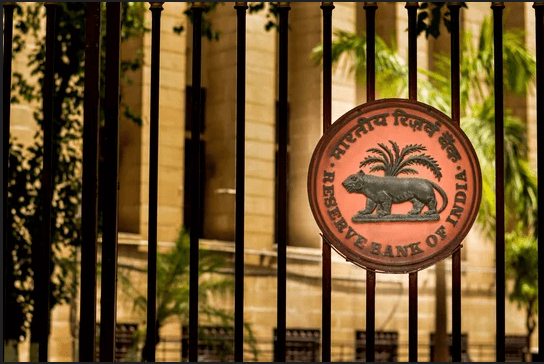Different types of banks in India and their function
As you know banks are the financial intermediaries that play a crucial role in the functioning of the economy of India. There are different types of banks present in India that perform different functions and contribute at different levels to cater to the needs of the different sections of our society and economy.
Every section of banks has different types of obligations that they need to fulfill. As an aware citizen of India, you should know all about that.
If you are wondering about the different types of banks in India, you are at the right place. In this article, we are going to provide all the information about the different types of banks and their functioning.
So let’s visit the article below and find out different types of bank and their functions.

What is a bank?
We all know what a bank means. But sometimes we fail to explain and understand it properly.
Banks are the types of financial institutions that generally perform deposit and lending functions and the banking industry is a well-known industry that handles finances in a country including cash and credit.
Banks are one of institutional bodies that accept deposits and grant credit to different entities and it plays a major role in maintaining the economic stature of a country.
Banks are like a bridge, that fills the gap between those individuals who want to save their money in a secure place and those who want to borrow money. It means that they tend to be individual-facing entities, whereas most of financial institutions are huge and mainly focus on working with institutional clients.
The bank takes deposits from the public at a much lower rate named as the deposit rate and lends money to them at a much higher rate called the lending rate.
Function of bank
The major functions of different types of banks are almost the same but the things that different sectors or types of bank deals with may differ. Some of the functions of the banks in India are given below
- Accepting deposits from the public
- Provide a demand withdrawal facility to the public
- Transferring of funds
- Issue of drafts
- Providing a locker facility to the customer
- Dealing with foreign exchange
Apart from the above-mentioned list, there are some other utility functions that also need to be performed by the various banks.
Different types of bank
Central Bank
A central bank is a financial institution or a type of bank which is given privileged control over the production and distribution of money and credit for a country or a group of countries. In the modern economic world, the central bank is solely responsible for the formulation of the monetary policy of a nation and the regulation of its member banks.
Central banks are inherently non-market-based institutes. In fact, it is an anti-competitive institution.
Although some of the central banks are nationalized, many central banks are actually not government agencies, and so are often touted as being politically independent.
Although, even if a central bank is not legally owned by the government, the privileges of the central bank are well-established and protected by law.
The critical feature that a central bank differentiates itself from other banks is its legal monopoly status, which gives it the privilege to issue banknotes and cash.
On the other hand, Private commercial banks are only permitted to issue some demand liabilities, like checking deposits.
Cooperative Banks
Cooperative banking is a retail and commercial banking system organized on a cooperative basis. Cooperative banking institutions basically take deposits and lend money in most parts of the world.
Cooperative banking generally includes retail banking which is carried out by credit unions, mutual savings banks, building societies, and cooperatives, along with different commercial banking services provided by mutual organizations like cooperative federations to cooperative businesses.
It is a small-sized, financial entity, in which its members are generally the owners and customers of the Bank. The cooperative banks are regulated by the Reserve Bank of India (RBI) and it is registered under the States Cooperative Societies Act.
Commercial Banks
A commercial bank is a type of bank or financial institution that accepts deposits from the public and gives loans to them as well for the purpose of consumption and investment to make a profit.
It can also refer to a type of bank, or a part of a large bank, that deals with corporations or different large/middle-sized businesses to distinguish it from a retail bank and an investment bank. Commercial banks include both private-sector banks and public-sector banks.

Regional Rural Banks (RRB)
Regional Rural Banks (RRBs) are the scheduled commercial banks in India that are responsible for conducting banking activities for rural areas at the state level.
As Its name suggests, the Regional Rural Banks look after to cater to the needs of the rural and underprivileged people at the regional level across different states in India.
The Regional Rural Banks (RRBs) were established in 1975 in India under the provision of the Ordinance promulgated on 26th September 1975 along with the Regional Rural Banks Act, 1976 with a view to developing the rural economy of the country by providing, for the purpose of the development of agriculture, trade, commerce, industry and other different productive activities in the rural areas, credit, and other facilities, specifically to small and marginal farmers, agricultural laborers, artisans, and small entrepreneurs, and for different affairs connected therewith and incidental thereto.
Local Area Banks (LAB)
LAB or popularly named Local Area bank is set up by the Government of India specifically in order to enable the local institutions to pool and mobilize rural savings and make sure that these savings are made available for different investments concerning needs.
In other words, these banks act as a bridge to fill the existing gaps concerning credit availability. Thus, it strengthens the credit mechanism in local areas like rural and semi-urban areas.
Specialized Banks
Specialized banks are a type of bank Or financial institution which primarily concentrate on financing specialized economic and social endeavors.
Different small and cottage enterprises financing are available for specialized activities in this bank like funding the rural asset-poor and landless, among other things.
India has a lot of specialized banks that primarily focus on the needs of entrepreneurs and gives support for the establishment of businesses in certain specific areas of activity, such as manufacturing. Consequently, these types of banks are named as specialized banks because they specialize in a certain field of activity.
Small Finance Banks
Small finance banks are generally a type of niche banks in India. small finance bank with a bank license can provide its basic banking service of acceptance of deposits and lending to its customer.
The primary aim behind the small finance bank is to provide financial inclusion to sections of the economy of India for not being served by other banks, like small business units, small and marginal farmers, micro and various small industries, and unorganized sectors.
Payments bank
A payments bank is just like other types of banks, who operates on a smaller scale without involving any credit risk. In simple words, the payments bank carries out most banking operations. However, the payments bank is unable to advance loans or issue credit cards.
This bank can accept demand deposits up to Rs 1 lakh, offer remittance services to the customers, payments/transfers/purchases through mobile, and other banking services like ATM/debit cards, net banking, and third-party transfers of funds.
Government bank
Public Sector Banks (PSBs) Or government banks are a major type of government-owned bank in India, that has a majority stake which is more than 50%.
The stake of the government bank is held by the Ministry of Finance of the Government of India or the State Ministry of Finance of various State Governments of India. The shares of these banks are also listed on stock exchanges. The major objective of these government banks is social welfare.
Exchange bank
The main focus of exchange banks is funding international trade. The primary roles and responsibilities of an exchange bank include money transfers between countries, the devaluation of foreign currencies along with assisting with export and import operations, etc.
Some of the examples of exchange banks in India involve the Bank of Tokyo and Bank of America.
Investment bank
An investment bank is a financial services company or type of bank that acts as an intermediary in different large and complex financial transactions.
The function of an investment bank usually begins when a startup company prepares itself for its launch of an initial public offering (IPO) and when a corporation merges itself with its competitor. It also operates as a broker or financial adviser for different large institutional clients such as pension funds.
Some of the best global investment banks include JPMorgan Chase, Goldman Sachs, Morgan Stanley, Citigroup, Bank of America, Credit Suisse, and Deutsche Bank.
Conclusion
There are a lot of types of banks operating in India as well as at the global level. Although they have different obligations and functions to perform, the ultimate goal of all the banks is the same.
*image source from Google



